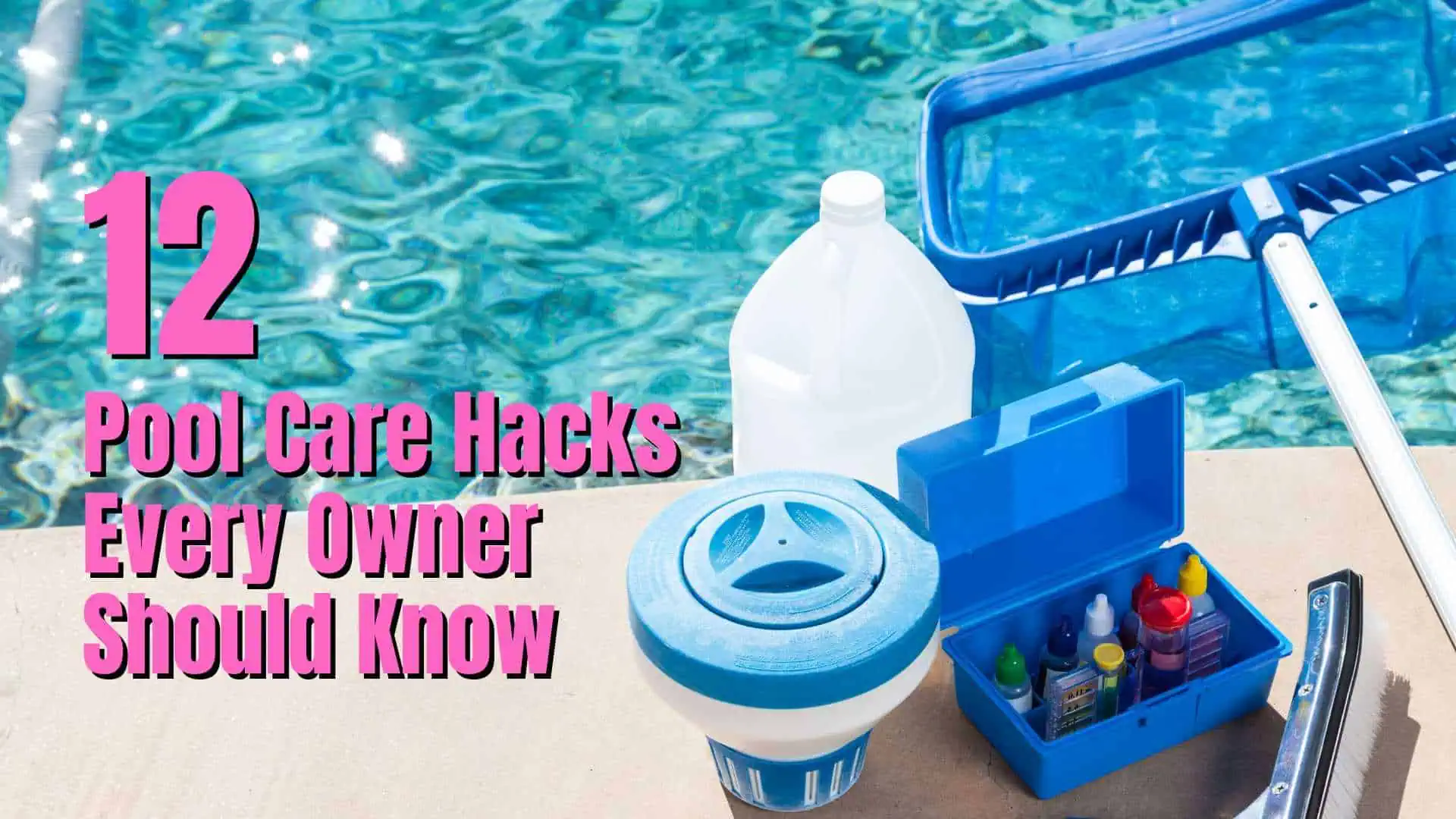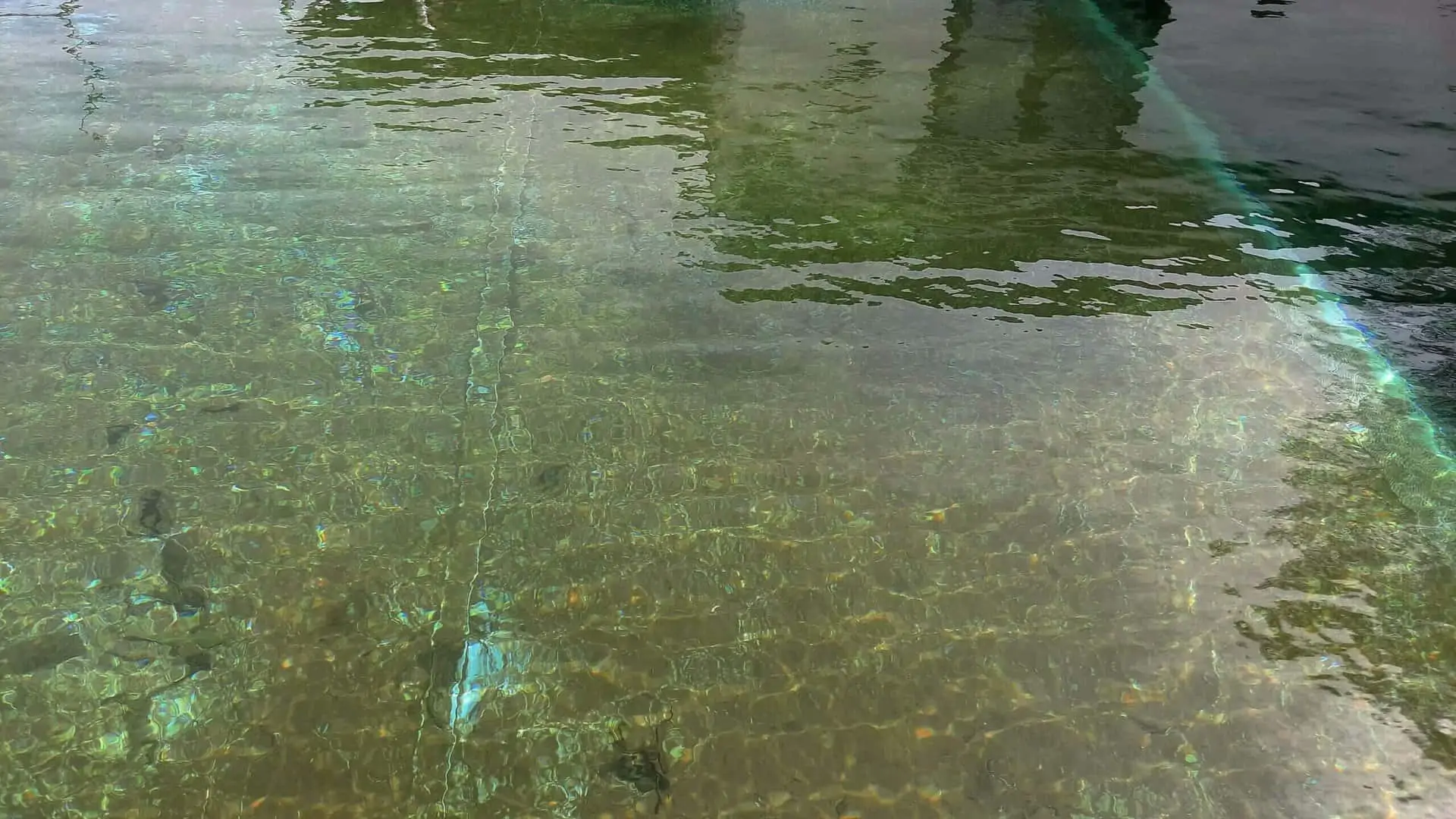When it comes to choosing a disinfectant for your hot tub water, chlorine and bromine are the two most popular options. Chlorine effectively kills bacteria and viruses, while bromine is effective at inhibiting algae growth.
Both of these chemicals have their own advantages and disadvantages. Chlorine is the more popular disinfectant because it kills a wide range of bacteria, including E-coli, salmonella, and staphylococcus.
The bad side of using chlorine is that it can be toxic if ingested or inhaled in high concentrations. On the other hand, bromine is less effective at killing bacteria and viruses, but it is safe to breathe, is normally better for sensitive skin and doesn’t have any harmful side effects.
Ultimately, it is important for hot tub owners to strike a balance in choosing a disinfectant that effectively reduces the bacteria and viruses that may be present in your hot tub and safe for your family.
Choosing between chlorine and bromine for your hot tub
When it comes to choosing between chlorine and bromine for your hot tub, it can be a bit confusing. Bromine is a more effective anti-fouling agent and is also less corrosive than chlorine.
On the other hand, chlorine is cheaper and easier to use, so it may be the better choice for some people. Ultimately, it depends on your specific needs and preferences.
Chlorine in hot tubs
Chlorine is one of the most common hot tub chemicals and sanitizers. When used in water, several things happen. Water evaporates from the tub’s surface, and when it does, some of the chemicals in the water go with it.
The chlorine used as the hot tub sanitizer then dissipates into the air or reacts with other chemicals in the water to create a waste product called chloramines, also known as combined chlorine. Many people experience an unpleasant chemical smell in their hot tub when this happens.
This is why it is recommended that chlorine levels be checked often, even if the chemicals are added regularly. When chlorine is used correctly, it does an excellent job of sanitizing and keeping the water in a hot tub safe and clean.
That’s why whenever you add chlorine, turn on your hot tub jets in order to mix chlorine around for a while so the chlorine can do its thing. After that, you are free to enjoy and relax in a perfectly safe hot tub environment.
Advantages of chlorine
Chlorine is a common disinfectant and sanitizer used in many households and commercial settings. It is effective against a wide range of bacteria, viruses, and fungi. This makes it a particularly good choice for a hot tub.
Additionally, chlorine is known to be safe for humans and pets in small doses. It does not damage the environment or healthful minerals in the water, and it can be used in conjunction with other disinfectants to ensure complete protection.
Chlorine is relatively cheap to buy and has stronger bleaching capabilities.
Disadvantages of chlorine
Chlorine can give health issues if not used correctly and can lead to dry skin and other skin complaints.
Chlorine tends to evaporate quickly (if not combined with a stabilizer such as cyanuric acid), which can be an issue since it can lose its potency before it even has a chance to act on contaminants in the water.
When do you add chlorine?
If you are regularly using it, it’s a good idea to check the chlorine levels in your hot tub frequently to keep it clean and sanitized. You can use a test strip, a chemical test kit, or if you’re out of those, you can even use your nose to get a whiff.
If you notice a strong smell of chlorine when you open the lid, then it normally means there is too much combined chlorine as the chlorine has combined with contaminants to produce chloramines (which is what you can smell). You can always dilute the chlorine by adding more water to the tub, but this will impact the chemical balance of your hot tub.
If the hot tub is indoors and you notice that chlorine smell, hot tub covers should be left off and all doors and windows opened in order for ventilation to occur. This will help the smell dissipate a lot faster.
Be careful when you add chlorine to your spa water because it can be very strong and irritating to the eyes and skin. It’s recommended that you wear goggles, gloves, and protective clothing when you put chlorine in your hot tub.
Free chlorine, combined chlorine and total chlorine
Chlorine, when used in a hot tub and swimming pool. is described as being free chlorine, combined chlorine and total chlorine. Free chlorine is the amount of chlorine in the water that is “free” to react with bacteria etc. Combined chlorine is the amount of chlorine that has already reacted with bacteria etc and has combined with it (so is no longer available). Total chlorine is the sum of both chlorine types.
Related post – Free chlorine vs combined chlorine vs total chlorine
Bromine in hot tubs
Bromine is another option for disinfecting a hot tub. It is often preferred by people who are sensitive to chlorine. Bromine does not evaporate like chlorine, so instead of coming out of the water and into the air, it remains in your hot tub.
While it has been used in spas since the 1980s, it has only recently become more popular. Unlike chlorine, which burns your eyes when you add it to the bubbling water in your hot tub, bromine does not have a strong burning effect on human skin or eyes.
It is especially beneficial in a hot tub that is constantly being exposed to sunlight because ultraviolet light can cause changes in values of pH levels when using chlorine sanitizers. Bromine does not require much attention when using it in a hot tub because there is no need to constantly monitor it for cleanliness.
Advantages of bromine
Bromine is preferable when it comes to a hot tub because of its sanitizing advantages over chlorine. Bromine has a lower tendency to evaporate compared to chlorine, making it more effective for large-scale applications like swimming pools.
Bromine breaks down slower than chlorine so is more stable and lasts longer.
Disadvantages of bromine
There are a few disadvantages to using bromine for disinfecting your hot tub. Bromine is corrosive and can damage metal surfaces. It can also create toxic fumes if not used properly.
This can pose a risk both to the bathers and the environment. Another problem with using bromine is that it takes longer than chlorine to break down organic contaminants in water.
Bromine is generally safe, but it has been known to cause skin irritation in some cases for people with particularly sensitive skin, which can be dangerous if there are cuts on the skin. Also, people with asthma may have difficulty breathing when exposed to strong bromine fumes.
Bromine is more expensive than chlorine normally.
How to use chlorine and bromine granules
To use chlorine and bromine granules, you will need to pre-dissolve them in a bucket before you add it to the hot tub. You will then need to turn on the hot tub jets/pump to mix it around the tub. Once mixed, the chlorine or bromine will start to work, making the hot tub water clean.
Do not add chlorine or bromine granules directly to the hot tub water.
How to use chlorine and bromine tablets
To use bromine and chlorine tablets, you will need to make sure they are fully submerged. If using large tablets break them into smaller pieces as a whole 3 inch tablet will be too much for a hot tub.
Put the pieces of tablet in a floating dispenser so that the bromine or chlorine dissipates slowly.
Never place chlorine or bromine tablets directly in the hot tub as their bleaching properties will probably discolor the shell.
After adding both chlorine or bromine in the hot tub, you will need to wait for a certain amount of time before going in. The amount of time you need to wait depends on the type of chlorine and bromine tablets you are using.
There are factors that affect how long you need to wait. For example, the water temperature in your hot tub will affect how fast or slow chlorine or bromine is absorbed into the water.
How much chlorine or bromine do you need to use?
To disinfect and keep your hot tub water clean, you will need to use a specific amount of chlorine and bromine. The amount will depend on the size and type of the hot tub that you are using.
It is recommended to add a little bit of chlorine or bromine every day rather than adding a large amount all in one go. This will ensure professional hot tub maintenance and the water will always be clean and safe for use.
Chlorine vs bromine. Which is more effective?
Both are used for the same purpose. But how can we distinguish which one is better? We could argue that chlorine is more effective than bromine in dissolving contaminants and chromium in the water.
Chlorine is also the most widely used oxidizing agent in hot tubs and swimming pools. It is a strong and versatile disinfectant, but it can be unstable as it tends to react with itself or other materials, producing dangerous compounds.
That is why you should consider investing in a cover for your outdoor hot tub. It’s a great idea to keep it covered and protected from UV damage, and you can avoid causing a dangerous chemical reaction.
Hot Tub Maintenance Course
I bought Swim University’s Hot Tub Maintenance Course a while after I bought my first hot tub and struggled to maintain it. It was money very well spent and it has paid for itself many times over the years as I have saved by not needing to use as many chemicals as I did previously.
EXCLUSIVE OFFER to visitors of this site
Use the discount code EASY10 at checkout to save 10% on this Swim University course.

Conclusion
Choosing between bromine vs chlorine you should use as a hot tub sanitizer will ultimately depend on what you need out of your hot tub. If you want a cheaper option, chlorine might be the better choice for you. On the other hand, if you prefer things to last longer and do not mind spending a bit more money on your hot tub, bromine is a safer bet.
Related hot tub articles
What causes alkalinity to drop in a hot tub?
How much chlorine to add to a hot tub

I have had hot tubs for over 20 years and a pool for the last 10 years. I had to learn how to clean, maintain and fix them the hard way. Since then I have helped many friends and neighbors with their pools and now I want to share everything I have learned with you. About Me



